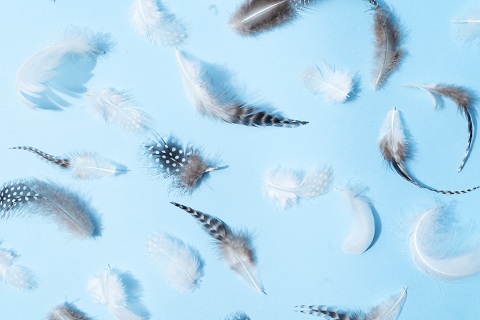Feather loss in birds can be a cause for concern among bird owners and enthusiasts alike. While it’s normal for birds to undergo molting, excessive or sudden feather loss may indicate underlying health issues. In this comprehensive article, we’ll delve into the various symptoms of feather loss in birds, exploring both common and uncommon causes, and offering insights into potential solutions.
Understanding Normal Molting:
Before delving into the potential causes of abnormal feather loss, it’s crucial to understand the natural process of molting. Molting is the shedding and regrowth of feathers, a vital aspect of a bird’s life cycle. It typically occurs in response to seasonal changes, hormonal shifts, or growth requirements. During molting, birds may appear scruffy or lose feathers, but this process is usually temporary and not a cause for concern.
Common Causes of Feather Loss:
Poor Nutrition:
- Inadequate diet can lead to nutrient deficiencies, affecting feather health.
- Lack of essential vitamins and minerals, such as vitamin A, can contribute to brittle and easily plucked feathers.
Parasites:
- External parasites like mites and lice can irritate a bird’s skin, leading to excessive preening and feather loss.
- Regular veterinary check-ups can help detect and treat parasite infestations.
Disease and Infections:
- Viral, bacterial, or fungal infections can manifest as feather abnormalities.
- Respiratory infections, for instance, can impact feather condition due to the bird’s weakened overall health.
Stress and Anxiety:
- Birds are sensitive to changes in their environment or routine.
- Stressful conditions, such as overcrowding or sudden changes in living arrangements, can trigger feather-plucking behaviors.

Uncommon Causes of Feather Loss:
Hormonal Imbalances:
- Disorders affecting the endocrine system may lead to abnormal feather growth.
- Female birds may experience hormonal changes during breeding seasons that influence their plumage.
Liver Disease:
- Liver dysfunction can affect the metabolism of essential nutrients crucial for feather health.
- Jaundice and changes in droppings may accompany liver issues.
Allergies:
- Sensitivity to certain foods, environmental factors, or cleaning agents can cause allergic reactions leading to feather loss.
Genetic Factors:
- Some breeds or individual birds may have genetic predispositions to feather disorders.
- Careful breeding practices can help minimize these issues.
Seeking Professional Help:
If you notice abnormal feather loss in your bird, it is crucial to seek veterinary assistance promptly. A veterinarian specializing in avian medicine can conduct thorough examinations, perform diagnostic tests, and provide tailored treatment plans.
Faqs and answer about Symptoms of Bird’s Feather Loss
Feather loss in birds can be attributed to various factors, including molting, poor nutrition, parasitic infestations, diseases, stress, hormonal imbalances, allergies, and even genetic predispositions. Identifying the specific cause often requires a veterinarian’s expertise through thorough examinations and diagnostic tests.
Molting is a natural process in a bird’s life cycle, involving the shedding and regrowth of feathers. It’s typically a normal and temporary occurrence. However, if your bird exhibits excessive feather loss outside the expected molting periods or if the feathers don’t regrow properly, it may indicate an underlying health issue that requires attention.
Ensuring a well-balanced and nutritionally rich diet is crucial for preventing feather loss related to poor nutrition. Birds require a variety of vitamins, minerals, and proteins. Consult with a veterinarian to determine the specific dietary needs of your bird, and consider providing a high-quality commercial bird food supplemented with fresh fruits and vegetables.
Yes, stress can be a significant factor in feather loss among birds. Changes in their environment, overcrowding, sudden disruptions, or the presence of predators can induce stress. Birds may respond to stress by engaging in excessive preening or, in severe cases, feather plucking. Creating a calm and stable environment, along with proper socialization, can help alleviate stress-related issues.
If you observe abnormal or persistent feather loss in your bird, it’s advisable to seek veterinary assistance promptly. A veterinarian specializing in avian medicine can perform a comprehensive examination, conduct necessary tests, and diagnose the underlying cause of the feather loss. Early intervention increases the likelihood of successful treatment.
Yes, genetic factors can play a role in feather disorders among certain bird breeds or individual birds. Responsible breeding practices can help minimize genetic predispositions to feather-related issues. If you suspect a genetic component in your bird’s feather loss, consult with a veterinarian to discuss appropriate care and management strategies tailored to your bird’s specific needs.
Conclusion:
Feather loss in birds is a multifaceted issue with a range of potential causes. Understanding the underlying factors is essential for effective intervention and ensuring the overall well-being of our feathered companions. Regular veterinary check-ups, a balanced diet, and a stress-free environment contribute to maintaining optimal feather health. By unraveling the mystery behind feather loss, bird owners can take proactive steps to nurture the beauty and vitality of their avian friends.